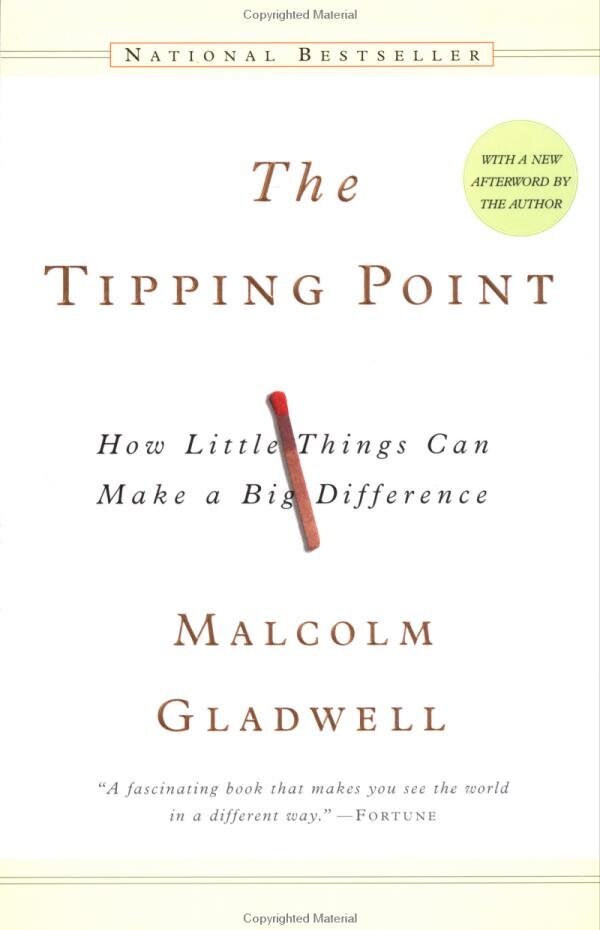Malcolm Gladwell, The Tipping Point: How Little Things Can Make A Big Difference. Back Bay Books, 2002.
Referenced in: Change Concepts and Theories
LifeandLeadership.com Summary
This book is more than a decade old, but is so influential that “the tipping point” has become part of the common language of most leaders. Gladwell’s research defines when an explosive social change actually becomes a trend. He looks at informal (e.g. word of mouth) and formal mechanisms that make a difference. The surprising insight is that the small, seemingly insignificant exchanges in the social arena may actually be more powerful than large scale marketing strategies.
This has significant implications for how we view change in congregations. Is it the elaborate plan or is it the few strategic conversations? It is probably both, but Gladwell’s “law of the few” reveals a weight toward conversations with key influencers who hold the currencies of social power among the people. He calls these the connectors, mavens, and salesmen. Working with elders, staff, and task forces will always be a part of due process for congregational change efforts. But the most success will be achieved by engaging key leverage points in the social environment. Gladwell describes and illustrates these leverage points, talks about what makes some ideas “sticky,” and the effect of population size on information dispersal, etc.
This also illustrates how formal change efforts, even those sanctioned and pushed by the appointed leaders, can be completely squashed and countered by a few key people who start a “social epidemic” that reaches a point where, like a virus, it cannot be stopped.
This book is easy and fun to read, and will pay off richly for church leaders who want to become more effective at orchestrating change in their congregations.
From the Publisher
This celebrated New York Times bestseller now poised to reach an even wider audience in paperback is a book that is changing the way North Americans think about selling products and disseminating ideas. Gladwell’s new afterword to this edition describes how readers can constructively apply the tipping point principle in their own lives and work. Widely hailed as an important work that offers not only a road map to business success but also a profoundly encouraging approach to solving social problems.
About the Author
Malcolm Gladwell is a former business and science writer at the Washington Post. He is currently a staff writer for The New Yorker.
***For additional information on this resource, including reviews, click the bookstore links. Check the reference at page top or the links below for resource guides on related topics.***
Related Areas
See Other Resources on Change and Transition in Churches:
- Change and Transition in Churches, Intro
- Change Concepts and Theories
- Change Receptiveness and Resistance
- Leading Change and Transition
See Resource Guides on Over 100 Areas of Ministry Leadership:


